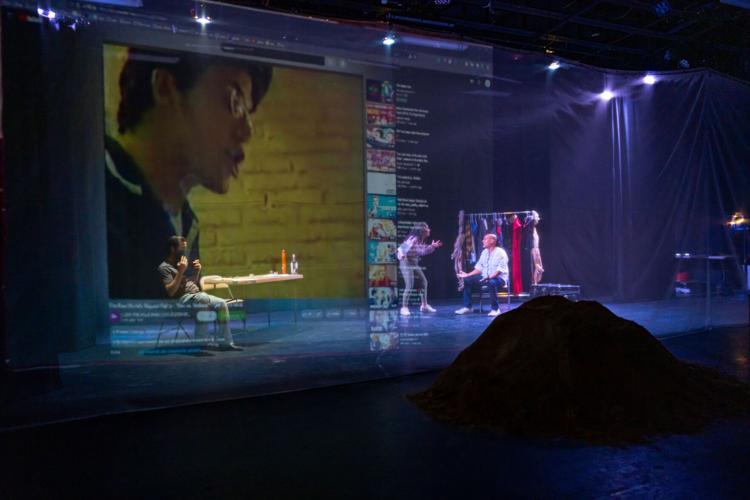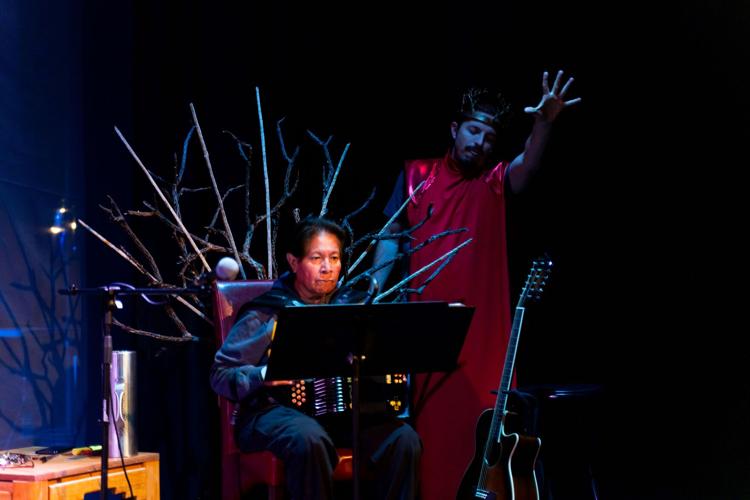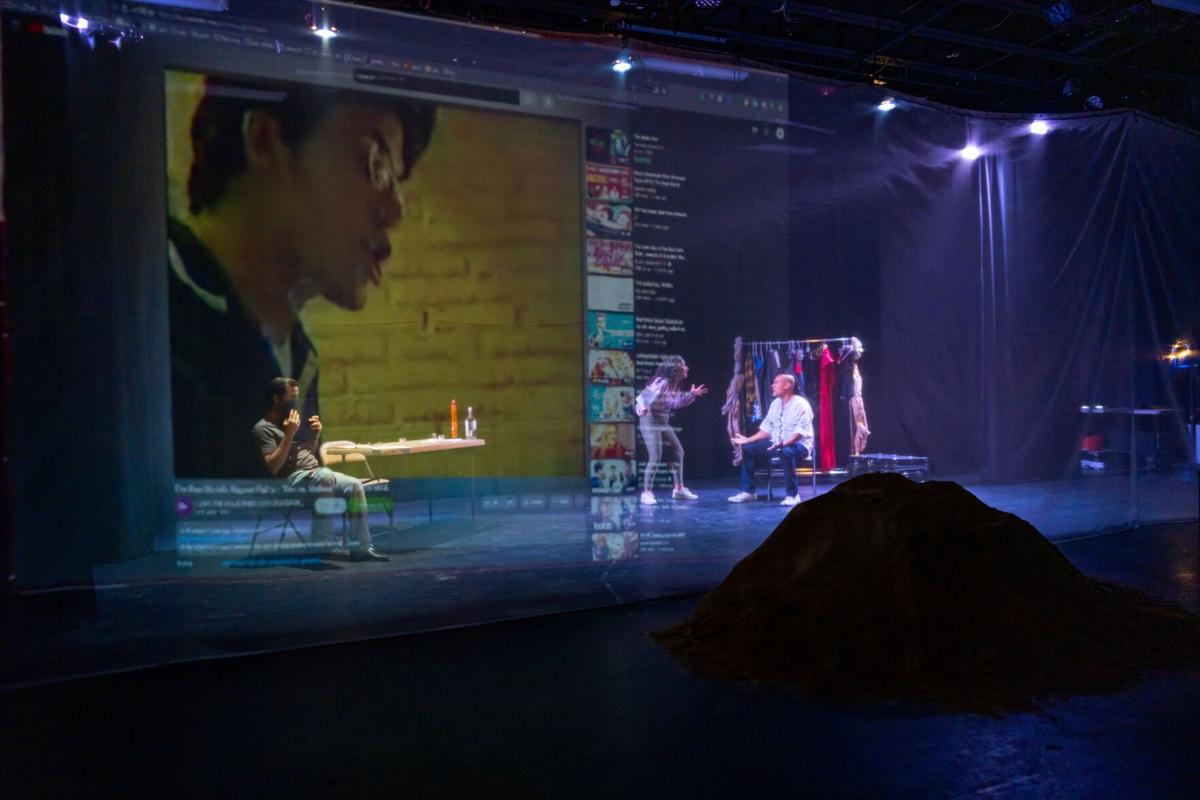Some stories must be told.
And Borderland Theater‘s “Antigona 3.0” is full of them.
The play, dubbed “in process,” takes Sophocles’ “Antigone” themes of moral versus state laws (Antigone ignored the law that she was not allowed to bury her brother) and civil disobedience and plants them on the U.S./Mexico border.
Through personal stories and haunting poetry from a chorus of desert wanderers we get a sense of the devastation and lack of humanity that walks that border line.
The play, funded by a $100,00 New England Foundation for the Arts grant, also looks at the process of creation. Between monologues and poetry we witness the angst and the pettiness and the fear and brilliance that goes into making a play, especially one made by a group of people. Credit for the writing goes to Borderland ensemble members Milta Ortiz, Jonathan Heras, Marc David Pinate, Adam Cooper-Terán and guest playwright Jesus L. Valles. It is co-directed by Pinate and Roweena Mackay.
The monologues pack a big punch, especially knowing that the actors tell stories from their own experiences. And through those personal tales we get the universal.
Through the character Mylta (Ortiz) we learn the story of her and her sister coming to America from Central America when they were children, months after their parents came here. She talked about the loneliness, the feelings of being not enough, and the vast journey she took not just to get here but to find herself. It was as heartbreaking as it was thrilling.
Mark’s (Pinate) story revolves around how he felt he betrayed a friend and himself while immersed in himself and his work and ignored the traumas his friend was dealing with, much of them surrounding immigration issues.
Other stories include John’s (Jonathan Heras) harrowing border story about family and violence and vengeance, and Atom’s (Adam Cooper-Terán) monologue about finding family in theater, his father, and what drew him to Tucson.
Gertie Lopez provided the music for the play, and ended it with the story of how the border has isolated the Tohono O’odham from family and customs and religious ceremonies.

Gertie Lopez and Jonathan Heras in “Antigona 3.0.”
Interspersed were Antigone-esque scenes with masks and puppetry. Most impressive were the video projections. Ghostly silhouettes and desert wanderers are projected on a scrim and serve as a chorus speaking to what the desert has seen and absorbed. Their words are poetic and heart wrenching: “This is how you make a border —/in bodies,/ drying in the desert, babies, floating in the river./ This is what it costs; always, a life,/ always a border/needs blood.”
The projections by Jason Aragon have a visceral impact.
This is a powerful production. Nevertheless, there seems to be too many stories — the monologues, the Antigone story, the creation of the play, the desert chorus. Though it never gets confusing, it is maybe too much for one play.
But, this is a work still in progress. It shows the courage and artistic and intellectual depth of Borderlands. And its ability to make us feel and understand the humanity surrounding border issues.
“Antigona 3.0” continues through Sunday, April 14, at Scoundrel and Scamp Theatre, 738 N. Fifth Ave., in the Historic Y. Tickets are $30 in advance through at borderlandstheater.org or $35 at the door. The play runs 90 minutes with no intermission. It contains adult language and images.






